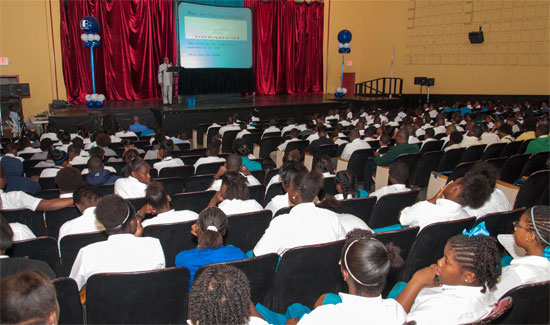Most Bahamians agree that our public education system is in dire need of a complete overhaul. Dismal graduation rates coupled with poor test performances are troubling indicators for the quality of our future young professionals – white or blue collar.
Graduating is often the easy part. Keeping abreast of the latest technology or trade-specific knowledge takes a lifetime of continuing education. Bahamians must demand greater skills training through public- private partnerships to relieve the tremendous cost burden associated with this activity.
The performance of an entity, private or public, generally relies on the strength of its human capital – that is, the employees. Based on the findings of the Inter-American Development Bank (IDB) report “Analysis of The Bahamas’ 2012 Wages and Productivity Survey”, our human capital is in need of a skills tune-up. This sentiment was echoed by Bahamas Hotel and Tourism Association President Stuart Bowe in April.
“We have a major skills shortage in The Bahamas – both soft and hard skills,” he said. “This is exacerbated by a high rate of turnover which according to the survey results is largely behavioral problems.”
To rectify skills shortcomings, local and international companies pay hefty immigration fees to bring in talented individuals with niche qualifications. What is needed is an identification of those hard and soft skills lacking in Bahamian employees and targeted industry training programs. Atlantis has a formidable training academy that has improved our tourism product; Baha Mar has its Baha Mar Academy. But perhaps the Bahamian Contractors’ Association (BCA) and Bahamas Technical and Vocation Institute (BTVI) joint program with grant funding from the IDB is the right training model for The Bahamas.
Atlantis, Baha Mar, and other large corporations can absorb the cost of training and reap the rewards of greater performance. But for small to medium enterprises, training is costly with limited in-person courses available in The Bahamas. The Internet has undoubtedly expanded training possibilities but such courses rarely target specific geographic regions. We need more collaboration between trade organizations,
private entities and development agencies to enhance training programs.
Bahamians do not lack the desire to learn. There are just too few opportunities for those interested to engage in professional development. Employers must encourage and enable employees to partake in structured and tailored programs. Trade associations must recognize the skills needed and use their combined resources to facilitate training programs as done by the BCA and BTVI.
Applying for grants and developing an education program takes initiative and commitment. Yet, it must be done. Instituting trade-specific programs for continuing professional development is crucial to improving our human capital.
– Editorial from The Nassau Guardian



